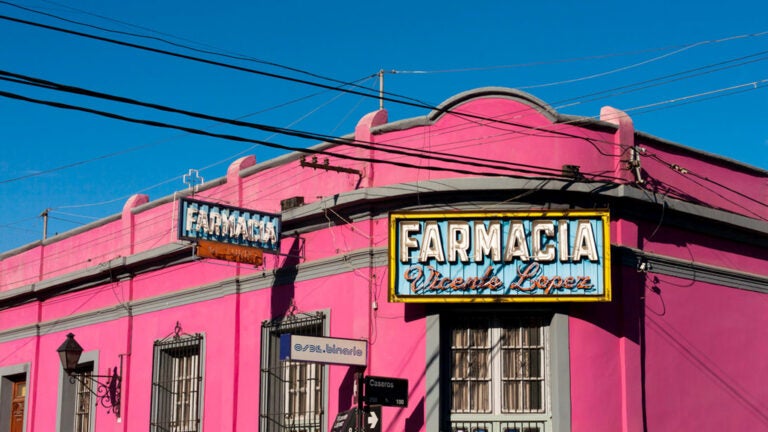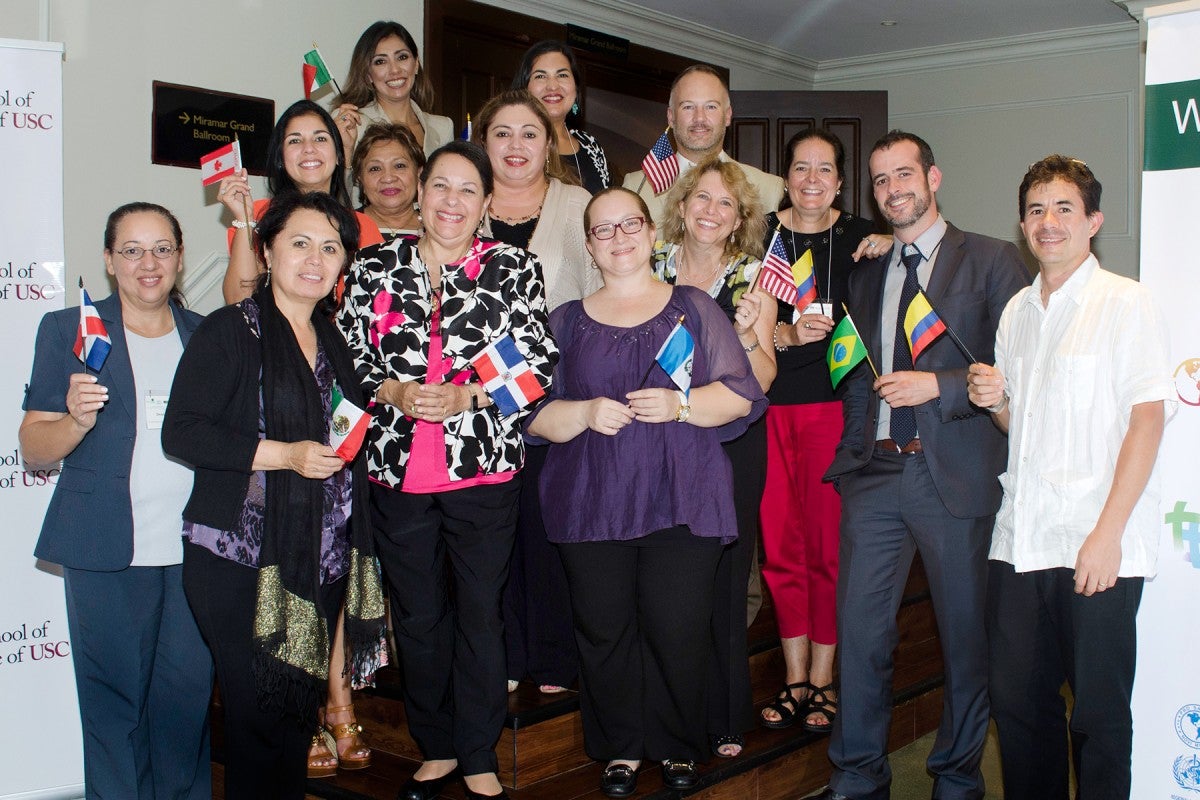
Outside a pharmacy in Salta, Argentina (Photo/ Alessandro Grussu)
Panama summit stokes vision of health equity in the Americas
USC faculty members join the two-day global conference aiming to reduce disparities among millions
From the northern tip of Alaska to the southern coast of Chile, the Americas host some of the most diverse — and disparate — populations in the world. Despite progress in medicine and economic development, though, health inequalities prevail among the area’s people, leading to avoidable premature illness and death.
Health-minded experts want to change that. Researchers, policymakers and civil society members from 13 countries recently gathered in Panama to begin developing plans to reduce health disparities, and the effort was led by the Center for Health Equity in the Americas (CenHealth) based at USC. Participants aim to form partnerships and promote research and training collaborations to advance health equity — people’s attainment of their highest levels of health, regardless of who they are and whatever their circumstances may be.
“We live in a time of transformation in the Americas,” said Lourdes Baezconde-Garbanati, CenHealth director and professor of preventive medicine at the Keck School of Medicine of USC, which organized the Oct. 7-8 conference. “Coming together to share our vision ensures that we unify efforts on behalf of health equity in some of the most vulnerable populations in the Western hemisphere.”
A unique opportunity
“USC is uniquely positioned, both culturally and geographically, to lead this initiative,” said Rohit Varma, interim dean of the Keck School of Medicine and director of the USC Gayle and Edward Roski Eye Institute. “The increasing globalization of our society brings both challenges and opportunities for health care worldwide. By bringing together visionary leaders for this summit and future endeavors, CenHealth is making important progress toward worldwide access to lifesaving treatments, medications and preventive care.”
Funded by the Keck School Dean’s Office, CenHealth began in 2015 and operates out of USC’s Institute for Health Promotion and Disease Prevention Research in the Department of Preventive Medicine.
Attendees at the Panama event included more than 60 representatives from 38 organizations, such as ministries of health, Centers for Disease Control, National Alliance for Hispanic Health, Healthy Americas Foundation, CenHealth, University of South Florida Foundation and the Pan American Health Organization at the World Health Organization, among others. From USC, 11 faculty members represented the Department of Preventive Medicine and the USC Norris Comprehensive Cancer Center, which supports the efforts of CenHealth.

Topics included cancer, as well as tobacco, vaccines, HPV, migrant and indigenous populations, obesity, and environmental and occupational risk factors.
Looking forward
Participants worked together to present findings and develop a strategic plan for research, government-community collaboration, training and mentorship of the next generation of scientists in cancer prevention and control.
The plan will help guide the direction of health equity in the Americas at the civic, government and academic levels. CenHealth will publish the results on its website in November.
Looking ahead, the path toward health equity will be challenging — especially considering the sensitive political climate surrounding immigration, said Maryann Pentz, co-director of CenHealth, professor of preventive medicine and holder of the Sidney R. Garfield Chair in Health Sciences.
And as new public health threats like Zika virus emerge, regional collaboration and partnerships are more important than ever, said Jonathan Samet, holder of the Flora L. Thornton Chair of the Department of Preventive Medicine at USC and director of the USC Institute for Global Health.
“With globalization and the advent of great scientific advances, such as the HPV vaccine — coupled with our strengthened relationships following this summit — we now have the tools and the reach to make a difference,” Baezconde-Garbanati said.
